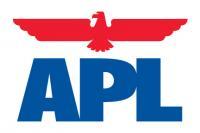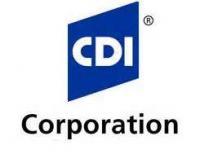On September 17, 2015, the 4th U.S. Circuit Court of Appeals issued a decision reviving cases that were originally filed in September of 2011 and then a second filed in January 2013 by a former employee of Norfolk Southern Railway Company (NS).
In the first lawsuit, the whistleblower claimed that NS suspended him due to his race. After the district court sided in favor of NS, he filed a second lawsuit. This complaint alleged that NS suspended him for reporting rail safety offenses, in violation of the whistleblower protection provision of the Federal Railroad Safety Act (FRSA). The district court again granted summary judgment in favor of NS, asserting that the whistleblower's second lawsuit was barred by the FRSA's “Election of Remedies” provision, which provides that “[a]n employee may not seek protection under both this section and another provision of law for the same allegedly unlawful act of the railroad carrier.” 49 U.S.C. § 20109(f).
In July 2011, NS suspended the whistleblowing employee without pay for six months. Neither party agreed to the factual basis of the suspension. NS claims it suspended the employee because he drank a beer on duty and then operated a company-owned automobile in violation of company policy. The plaintiff, who is African–American, claims the suspension was motivated both by his race and in retaliation for federal rail safety whistleblowing.
Less than two months after filing his first lawsuit, Lee filed a complaint with the Occupational Safety and Health Administration (OSHA) under the FRSA's whistleblower provision, 49 U.S.C. § 20109. That provision prohibits railroad carriers from, among other things, discriminating against employees who “refuse to violate or assist in the violation of any Federal law, rule, or regulation relating to railroad safety or security.” Id. § 20109(a)(2). According to Lee, federal law required him to identify—or “bad order”—defective rail cars for repair. NS capped the number of cars he could tag with such orders, however, effectively requiring him to violate federal law. When he refused to comply with the caps, Lee alleges that NS suspended him in July 2011.
First, the district court concluded that, to the extent Lee's claims were based on the collective bargaining agreement, they were preempted by the Railway Labor Act (RLA), 45 U.S.C. § 151 et seq., which requires arbitration of such claims. The court further concluded that NS was not vicariously liable for the individual instances of racial harassment by Lee's co-workers.
Less than a month after the district court granted NS summary judgment in the first lawsuit, Lee filed his FRSA retaliation lawsuit. The allegations in this second lawsuit largely track those in Lee's OSHA complaint. Lee again alleged that he was tasked with tagging defective train cars with “bad orders,” but that NS capped the number of cars he could tag. In doing so, Lee contends NS pressured him to “violate federal rail safety regulations and laws and violate NS's own safety and mechanical department rules.”
On May 20, 2014, the district court granted summary judgment to NS on Lee's FRSA claims, concluding that Lee's first lawsuit for racial discrimination under Section 1981 constituted an election of remedies under FRSA Section 20109(f) that barred Lee's subsequent FRSA retaliation action. Lee then timely noted this appeal.






